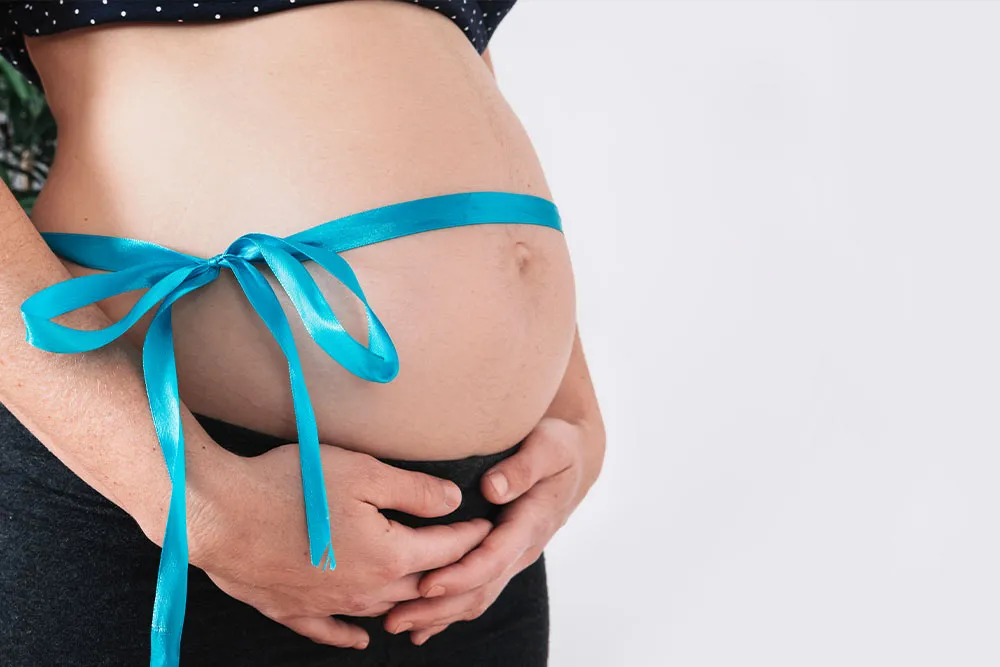For many women, the dream of starting a family feels just out of reach, hindered by the challenges that come with chronic weight issues. It’s a frustrating and emotional journey, where the very goal of motherhood can seem complicated by your own body.
From our experience, bariatric surgery can be a powerful turning point. By addressing the root cause, surgery can dramatically improve fertility, significantly reduce the risks of serious pregnancy complications for both mother and baby, and create a foundation of lifelong health.
In this guide, we’ll walk you through everything you need to know about pregnancy after bariatric surgery, from the ideal timing to our essential tips for a healthy pregnancy.
Planning Your Pregnancy After Weight Loss Surgery
How soon can you get pregnant after weight-loss surgery?
We recommend waiting 12 to 18 months after your bariatric procedure before trying to conceive. This waiting period gives your body the time it needs to stabilize from rapid weight loss and establish new nutritional patterns. Think of it as giving your body a solid foundation before building your family.
Why Timing Your Pregnancy After Bariatric Surgery Matters
Getting pregnant too soon after surgery can pose risks for both you and your baby. During those first 12-18 months, your body is actively losing weight and adjusting to new nutrient absorption patterns. Waiting ensures you’ve reached a more stable weight and nutritional status, creating the healthiest environment for your growing baby.
Essential Pre-Conception Steps
Before you start trying, you should schedule a pre-conception consultation with your bariatric team where they would check your nutrient levels, adjust your supplement regimen if needed, and ensure you’re nutritionally prepared for pregnancy. This proactive approach sets the stage for a healthy pregnancy from day one.

Benefits of Getting Pregnant after Bariatric Surgery
Boosting Fertility and Improving Outcomes
Many of our patients see remarkable improvements in fertility after bariatric surgery, especially women with PCOS (Polycystic Ovary Syndrome). The weight loss helps regulate hormones and ovulation cycles, often making conception easier than before surgery.
Reducing Pregnancy Complications
Bariatric surgery leads to significant reductions in serious pregnancy complications. Women who achieve a healthier weight before conception dramatically lower their risk of developing gestational diabetes and preeclampsia, two conditions that can complicate pregnancy.
For women with type 2 diabetes, having bariatric surgery to treat their condition before pregnancy can be transformative. The resulting weight loss often brings diabetes into remission and improves blood sugar control before conception.
Benefits for Your Baby’s Health
Your healthy weight journey benefits your baby too. Research shows babies born to mothers after bariatric surgery have lower risks of being significantly larger than average (macrosomia) and are less likely to need C-section deliveries.
Considerations for Pregnancy After Bariatric Surgery
Nutritional Needs and Monitoring
When you’re pregnant, nutrition becomes your top priority, especially after having weight loss surgery. We always advise our patients to closely monitor key nutrients like iron, B12, vitamin D, calcium, and folate throughout their pregnancy. Many of them end up needing higher doses of specific supplements to support both their needs and their baby’s development.
Gaining Weight During Pregnancy
We understand that intentionally gaining weight after working so hard to lose it can feel concerning. However, during pregnancy, this is a necessary and positive step for your baby’s healthy development. The key is to shift your focus to nourishing both yourself and your growing baby.
Since every pregnancy is unique, we strongly encourage you to maintain open communication with your obstetrician and dietitian, who will help you establish personalized weight gain targets and provide ongoing nutritional guidance throughout your pregnancy journey.
Alongside nutrition checks and healthy weight-gain planning, it’s important to understand the full range of potential risks and complications of bariatric surgery.
Best Practices for a Healthy Pregnancy Post-Bariatric Surgery
Consult with Healthcare Providers
Women considering pregnancy after bariatric surgery should consult with their healthcare providers to develop a comprehensive plan for managing their health and nutrition. This plan should include regular check-ups, nutritional assessments, and appropriate supplementation.
Maintain a Balanced Diet
Maintaining a balanced diet rich in essential nutrients is crucial for women who have had bariatric surgery and are planning to conceive. Focus on consuming a variety of fruits, vegetables, lean proteins, and whole grains to support overall health and pregnancy outcomes.
Stay Active
Maintaining gentle physical activity during pregnancy can be particularly beneficial, helping to manage fatigue, improve mood, and support healthy circulation. If you’re considering exercising after bariatric surgery, it’s important to consult your doctor first, especially during pregnancy.
Monitor Weight and Health
Regular monitoring of weight and health is important for women who have undergone bariatric surgery. This helps ensure that weight loss is stable and that any potential nutritional deficiencies are addressed promptly.

Does the Type of Bariatric Surgery Matter?
The type of procedure you’ve had doesn’t change the end goal of a healthy pregnancy, but it does shape the specific journey. Each surgery has unique considerations for nutritional management and monitoring during pregnancy,
| Procedure | Key Consideration for Pregnancy |
| Gastric Sleeve | Lower malabsorption risk makes nutrient management more straightforward, though monitoring remains essential. |
| Gastric Bypass | Requires careful attention to iron, B12, and calcium levels, with possible higher supplement doses. |
| Gastric Band | May need adjustment during pregnancy to accommodate changing nutritional needs and comfort. |
Frequently Asked Questions (FAQs)
Yes, pregnancy after bariatric surgery is not only possible but often leads to healthier outcomes. Many women experience improved fertility following surgery, particularly those with weight-related fertility issues.
The bariatric pregnancy diet emphasizes frequent, small meals rich in protein along with specific vitamin and mineral supplementation. Regular monitoring of nutrient levels is essential throughout pregnancy.
Yes, successful pregnancies are common after gastric bypass. However, these pregnancies require close monitoring of nutritional status and typically involve higher doses of specific supplements like iron, calcium, and B12.
Yes, gastric sleeve patients can have healthy pregnancies. While nutritional monitoring remains important, these patients generally have fewer malabsorption concerns compared to gastric bypass patients.
Yes, bariatric vitamins are safe during pregnancy and often need to be continued. Dosages may require adjustment to meet increased pregnancy demands, particularly for folic acid and iron.
Yes, bariatric surgery significantly improves fertility in many women. Weight loss helps regulate menstrual cycles, improves ovulation, and can resolve conditions like PCOS that affect fertility.
Start Your Journey to a Healthy Pregnancy
Embarking on the journey to motherhood after bariatric surgery can lead to a healthier pregnancy for you and your baby. If you are considering starting a family and want to explore how weight loss surgery can help, our specialists are here to guide you.
Take the first step today and book a consultation with our bariatric team to discuss your options.






